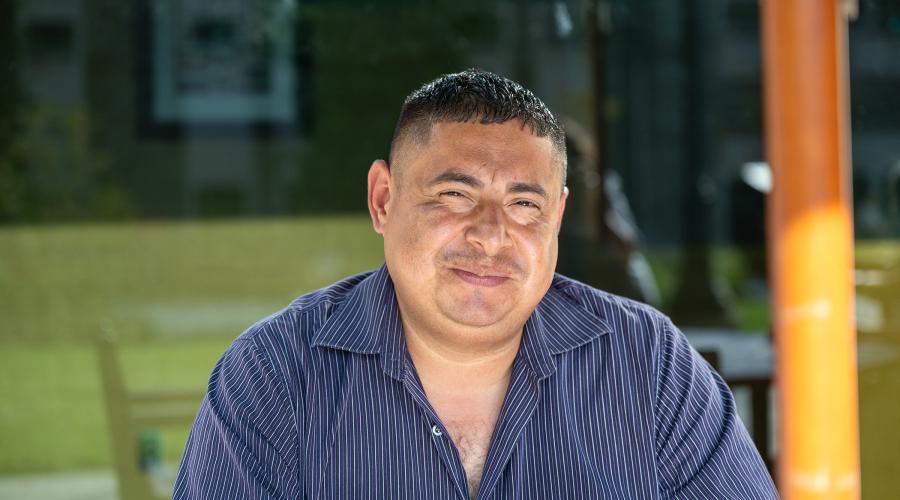
“Stories of Belonging” Highlights Journeys of Central Americans
Jose Urias is a married 45-year-old entrepreneur and father of two sons, one of whom is in his first semester at Babson College.
His Malden, Massachusetts, construction and real estate businesses employ 50 people.
“I achieved my American dream,” he said, but lives under the threat of deportation to El Salvador, which he left as a 15-year-old.
Urias is among 850,000 people from 16 countries in the United States with temporary protected status, known as TPS, which must be renewed through the federal government every six to 18 months.
“There is no path to citizenship,” said Urias, who spends hours each week lobbying Congress with the National TPS Alliance to create permanency for people who live and work in the United States through the humanitarian relief program, but who are trapped in a politically precarious limbo.
Urias shared his story at the ILR School on Sept. 17 at a reception celebrating “Stories of Belonging: Central American TPS Workers & the Defiant Struggle to Stay Home in the U.S.,” a traveling multimedia exhibit displayed in ILR’s Golden Courtyard.
The exhibit grew out of ILR Worker Institute Executive Director Patricia Campos-Medina’s doctoral thesis and was funded by Migrations: A Global Grand Challenge, part of Global Cornell.
The exhibit’s mission is to engage communities via research and learning spaces that explore the intersections of racism, dispossession and migration. National TPS Alliance is a project partner.
“Not legal. Not illegal. Just TPS. Examining the integration experience of Central American immigrants living under a regime of long-term temporality,” was completed by Campos-Medina in 2019 as a Ph.D. student at Rutgers University.
Her research found that despite the lack of access to citizenship, the TPS holders feel the U.S. is their home, the place they belong. “Workers with TPS have been fully employed in the U.S. economy, they pay taxes, they have U.S.-born children, they are home and business owners, they have joined unions and continue to engage in social movement organizing to defend their right to belong and their children’s future.
In short, she said, “They have built their lives in the U.S. and feel they have become American.”
As a political scientist and labor relations expert, Campos-Medina said she was drawn to researching the TPS workers’ experience because it is important to understand how immigration policy, the granting or exclusion of citizenship rights to large groups of workers, is changing the American workplace.
“TPS workers have thrived in American society despite not having permanency. Like any other immigrant group before them, they have embraced American democracy and participate in it to defend their own humanity and secure their children’s future. Their stories are American stories.”
“At a time of impasse on our immigration policy reform, it is important to elevate the voices of these workers who are our neighbors and our colleagues at work. They are fighting for their right to belong and by doing so strengthening our unions, our communities and our Democracy.”
The Stories of Belonging exhibit travels next to New Jersey City University’s Jersey City campus, where it will be displayed Oct. 7-11. Register for the Oct. 8 reception here. Plans are underway for the exhibit to be shown in Boston and Washington, D.C.
The exhibit is open to the public and TPS holders are invited to participate and share their stories publically. Follow this ILR Worker Institute page to learn more about the project and see details of its next city stop